The way HOAs in Miami operate has changed significantly in recent years. Gone are the days when board tasks relied on paper files and in-person communications. Today, everything from processing assessments to archiving governing documents is handled online. While digital tools increase efficiency and improve communication, they also open the door to cyber threats.
As cybercriminals become more sophisticated, Miami HOA boards must take proactive steps to protect sensitive community information. This isn’t just a matter of technology—it’s about safeguarding credibility, maintaining compliance, and preserving resident trust. Working with a local team that understands both governance and security—like those who specialize in HOA success in Miami—can help ensure your HOA thrives without sacrificing security.
Key Takeaways
- Cybersecurity must be embedded in HOA operations rather than treated as a side concern.
- Regular board training is vital to prevent and respond to cyber threats effectively.
- Routine security audits reveal vulnerabilities before they become damaging breaches.
- Professional management ensures compliance with privacy laws and industry best practices.
- Transparency in security measures builds trust and engagement among residents.
Creating a Security-First HOA Culture
A strong cybersecurity program starts with a culture of awareness. Every board member, staff member, and approved vendor with access to HOA systems plays a role in protecting resident data.
Key steps to building this culture include:
- Using strong, unique passwords for all accounts and changing them regularly.
- Enabling multi-factor authentication for platforms storing financial or personal information.
- Restricting data access to only those who need it for their role.
- Adding cybersecurity updates as a standing item in board meeting agendas.
- Scheduling quarterly training to teach members how to spot phishing attempts, scams, and suspicious activity.
In large Miami communities, a single compromised account could put hundreds of residents’ personal and financial details at risk, making a proactive approach essential.
How PMI Brickell Protects Community Data
PMI Brickell blends local expertise in Miami HOA operations with modern cybersecurity practices. Our focus is on ensuring technology boosts efficiency rather than creating vulnerabilities.
We provide:
- Encrypted payment processing for assessments and community fees.
- Secure resident and board portals with end-to-end encryption.
- Cloud-based storage systems with automated, encrypted backups.
- Role-based access controls to prevent unauthorized data use.
- Ongoing monitoring with prompt updates to address emerging threats.
We also help boards integrate cybersecurity policies into overall governance strategies, ensuring that security aligns with community goals—whether that involves everyday operations or seasonal initiatives.
Conducting Thorough HOA Security Audits
Even the best systems require regular reviews to ensure they remain secure. A comprehensive HOA security audit should:
- List all systems, software, and devices used for HOA functions.
- Identify every individual with access to sensitive data.
- Verify that encryption and multi-factor authentication are active across platforms.
- Confirm that operating systems and software are updated.
- Establish policies for personal devices used to access HOA systems.
Acting quickly on audit findings not only minimizes the risk of a breach but also reassures residents that their privacy is a top board priority.
Why Professional Management Strengthens Cybersecurity
Self-managed HOAs may attempt to handle digital security in-house, but without dedicated expertise, it’s easy to overlook updates or miss warning signs of a cyberattack. This can lead to costly data breaches or violations of Florida’s privacy regulations.
Professional management offers:
- HOA-specific technology with built-in security features.
- Proactive system monitoring and timely updates.
- Compliance with both state and federal privacy laws.
- Secure, centralized communication tools for board and resident use.
- Policy guidance that links security measures to broader operational goals.
Partnering with an experienced provider—such as those offering self-managed services—ensures your board remains both secure and efficient.
Preparing Miami HOAs for the Digital Future
With more HOA functions moving online—from maintenance requests to voting—cybersecurity must be treated as an evolving priority. Forward-thinking boards can prepare by:
- Reviewing and updating technology policies annually.
- Creating an incident response plan to handle potential breaches.
- Screening vendors for security compliance before signing contracts.
- Keeping board members informed about new threats, such as AI-powered phishing.
- Hosting community workshops on safe digital practices.
Making these practices standard ensures Miami HOAs can confidently adopt new technologies without exposing residents to unnecessary risk.
Building Resident Trust Through Transparency
Cybersecurity isn’t just about defending against attacks—it’s also about creating confidence. Residents want to know their personal data is managed securely.
Boards can build this trust by:
- Sharing information about system upgrades or security initiatives.
- Communicating audit results and planned improvements.
- Encouraging residents to participate in security awareness events.
Transparent communication fosters community engagement and strengthens the relationship between the board and residents.
Florida Compliance and Legal Obligations
Miami HOAs must follow strict privacy regulations when handling personal and financial data. Noncompliance can lead to fines, lawsuits, and loss of credibility. Professional management helps ensure these requirements are met consistently, adapting to changes in state and federal laws to keep associations protected.
Strengthening Board Leadership Through Security
Cybersecurity responsibilities often fall heavily on the board. Ensuring board members have the tools, policies, and training to address digital threats is critical to community safety. Partnering with experts who specialize in supporting HOA board members gives your leadership team the confidence and resources to protect sensitive information effectively.
Keeping Security a Continuous Priority
Cyber threats evolve quickly, and what works today may not be enough tomorrow. For Miami HOAs, that means treating cybersecurity as an ongoing responsibility—requiring regular board education, system reviews, and strategic partnerships with experts who track emerging risks.
Secure Your Community’s Digital Future
Cybersecurity impacts far more than just your HOA’s files—it affects trust, efficiency, and your community’s reputation. PMI Brickell offers the expertise, tools, and ongoing support needed to protect sensitive resident data while enhancing operational performance. Take the first step toward stronger digital protection by connecting with PMI Brickell’s team today.
FAQs
1. Why should Miami HOAs prioritize cybersecurity?
Cybersecurity ensures resident information remains safe, maintains compliance with privacy laws, and protects the association’s reputation.
2. How often should security audits be done?
Audits should be performed annually at a minimum, with quarterly checks recommended for larger associations or those managing high transaction volumes.
3. What are the most common threats to HOAs?
Phishing scams, ransomware attacks, unauthorized portal access, and breaches of payment systems are common risks.
4. Can residents help improve security?
Absolutely. Residents can use secure passwords, avoid suspicious links, and promptly report unusual online activity to the board.
5. Does Florida have specific HOA privacy laws?
Yes. Florida regulations govern how HOAs handle personal and financial data, alongside applicable federal laws like the Fair Credit Reporting Act.


